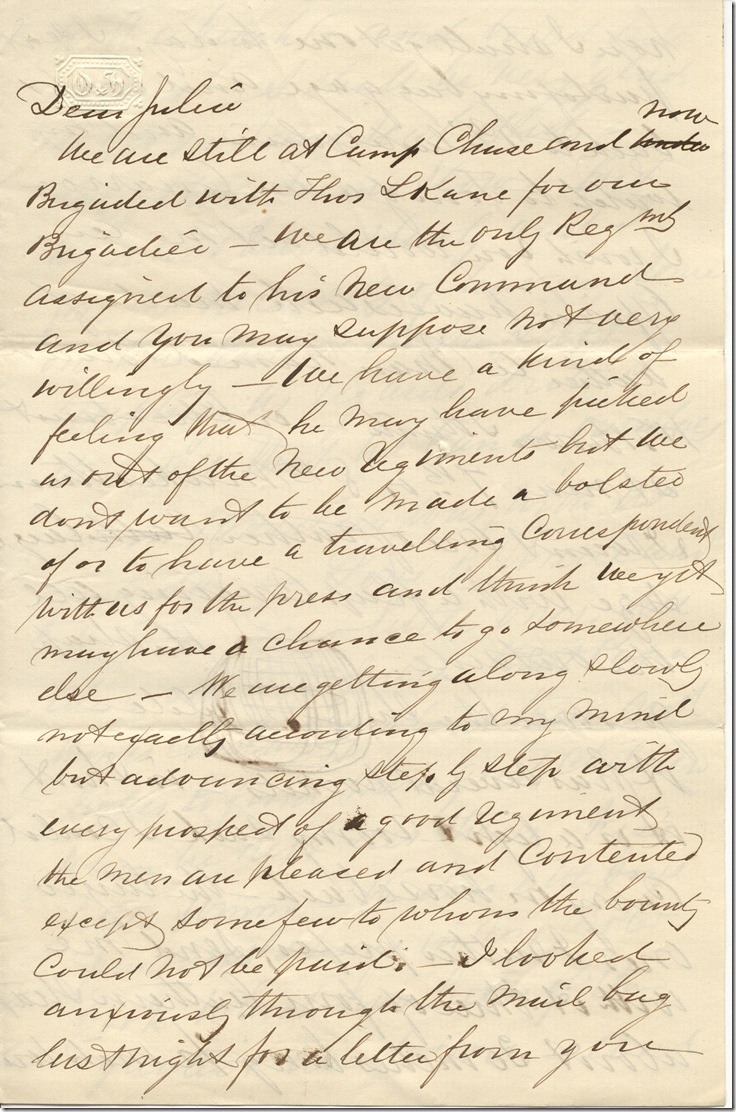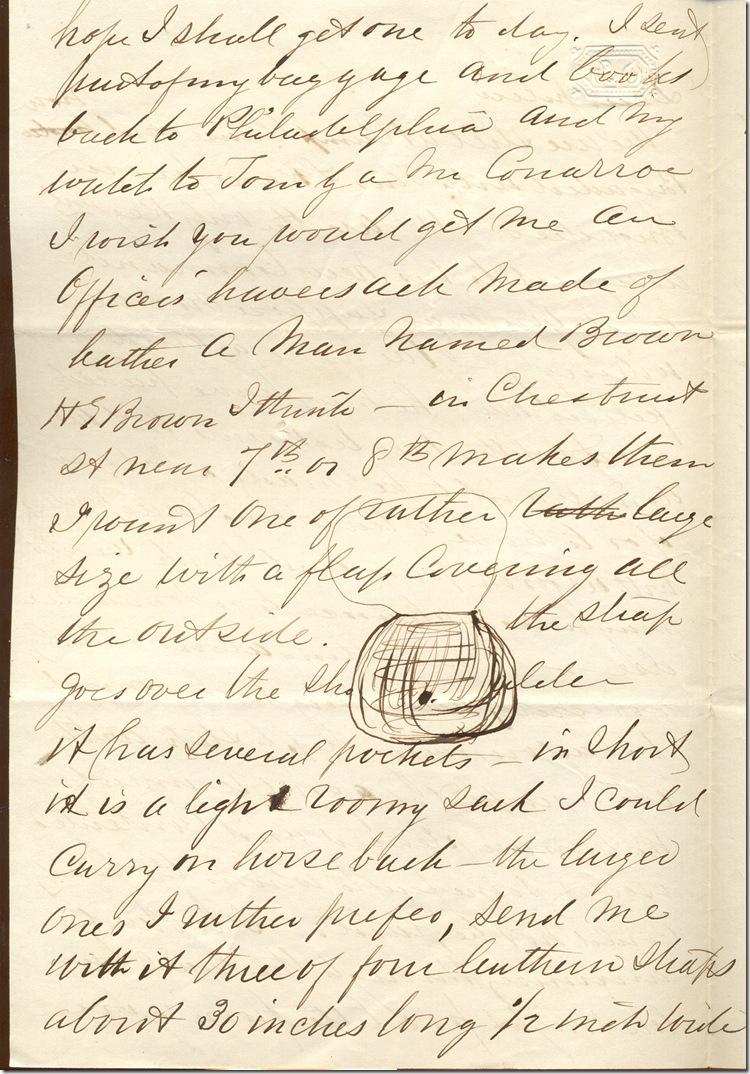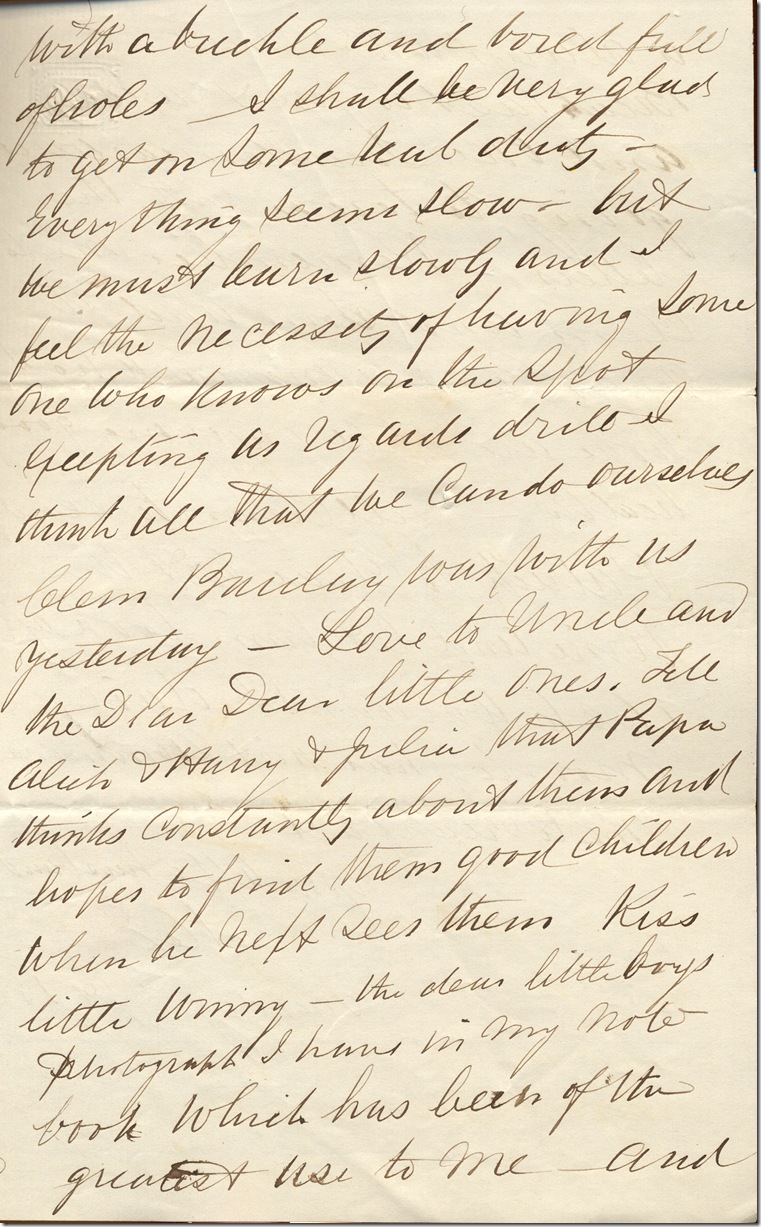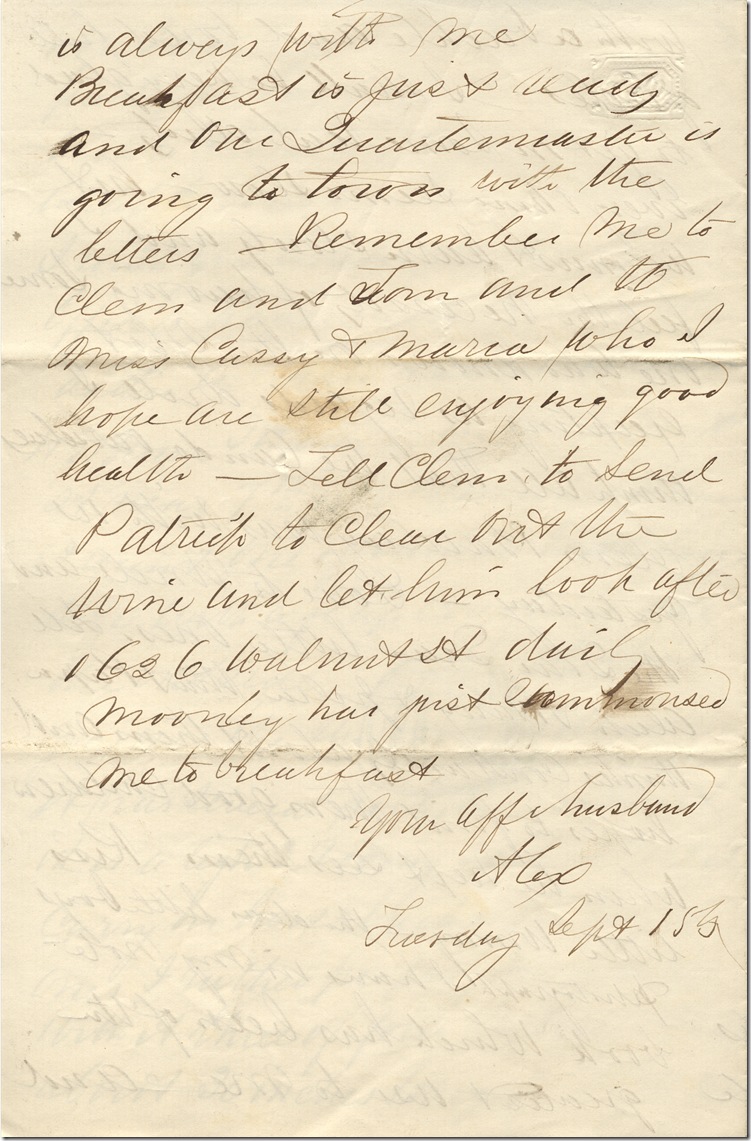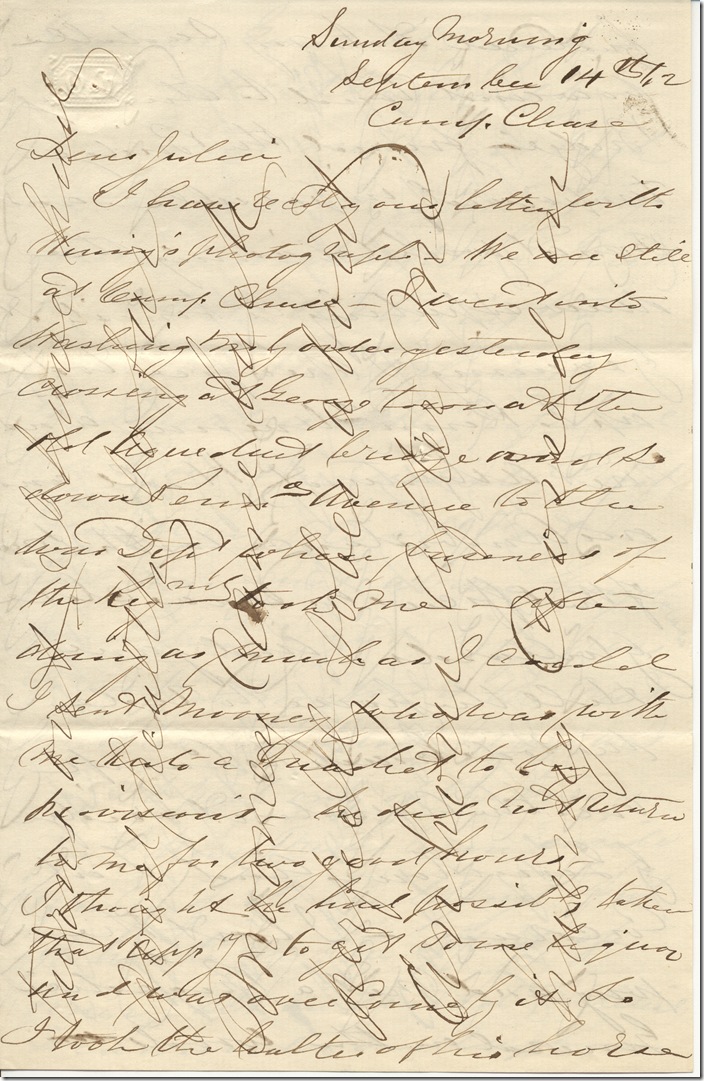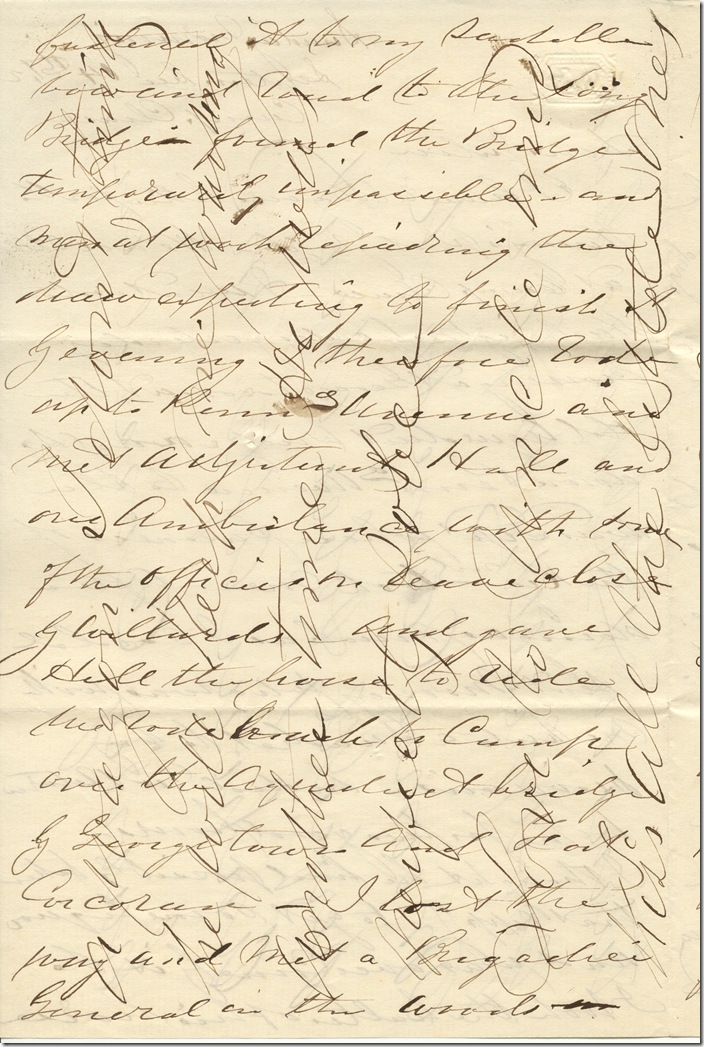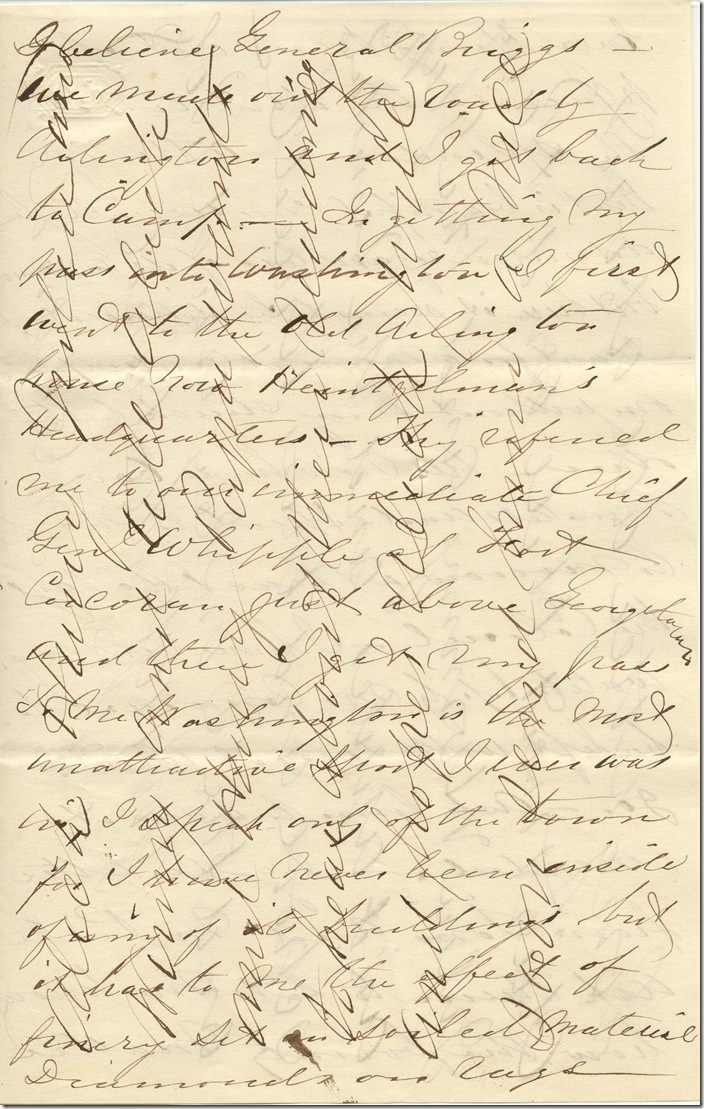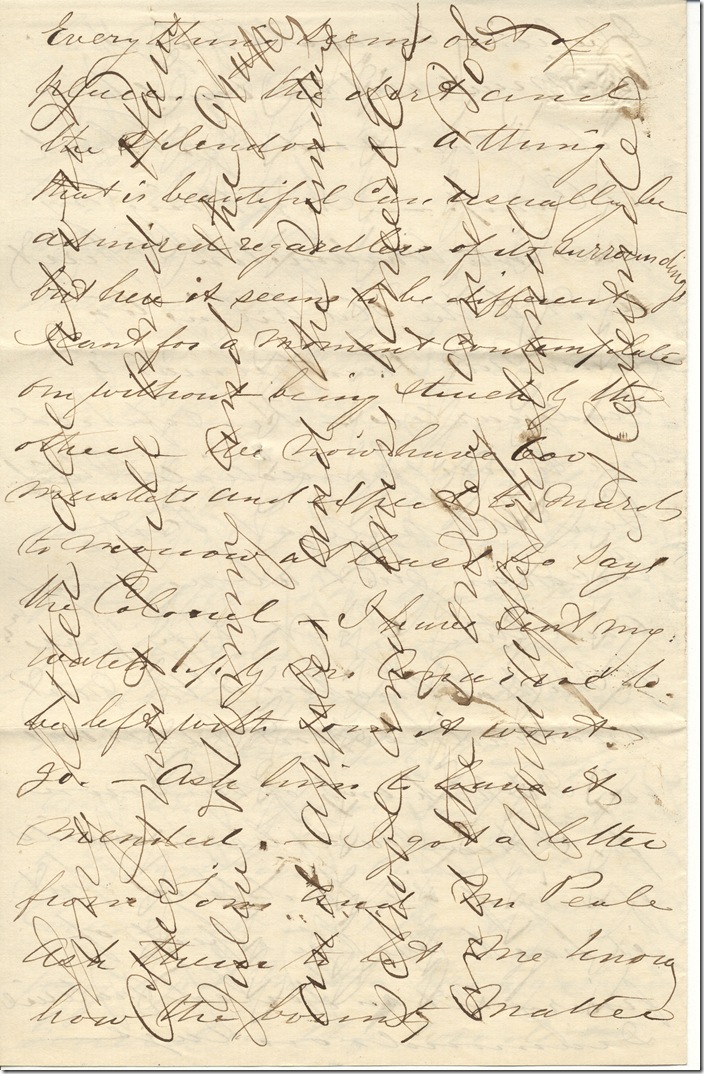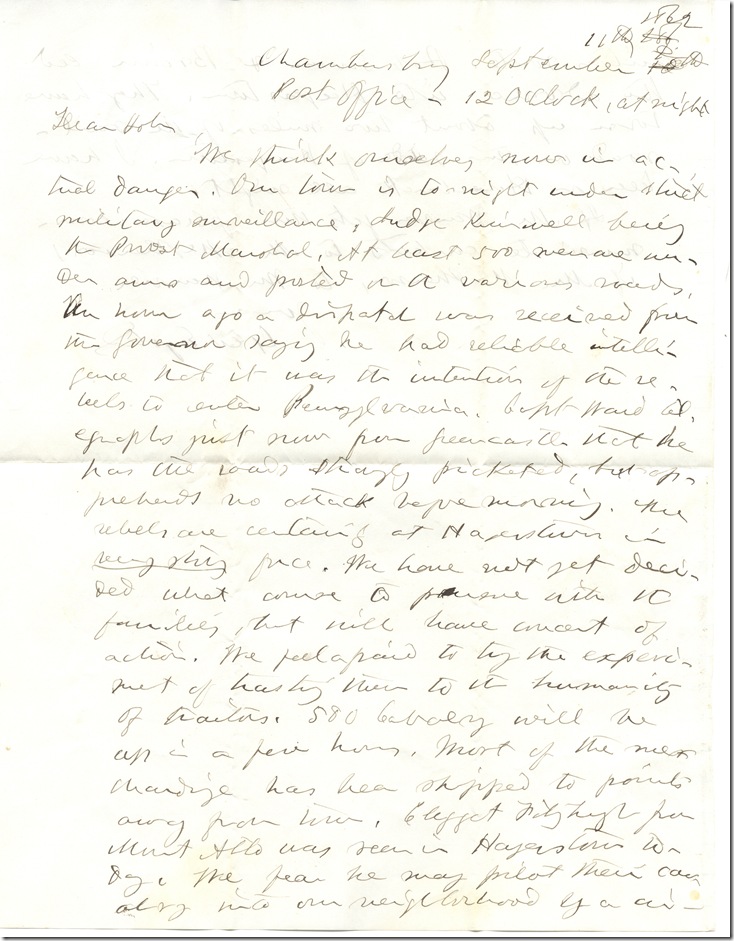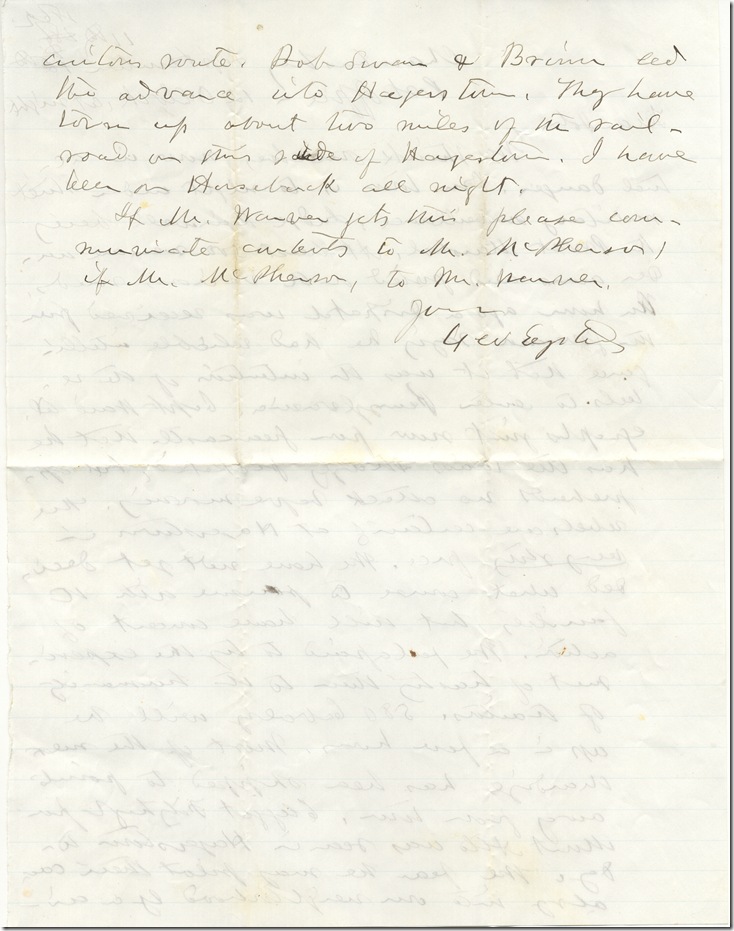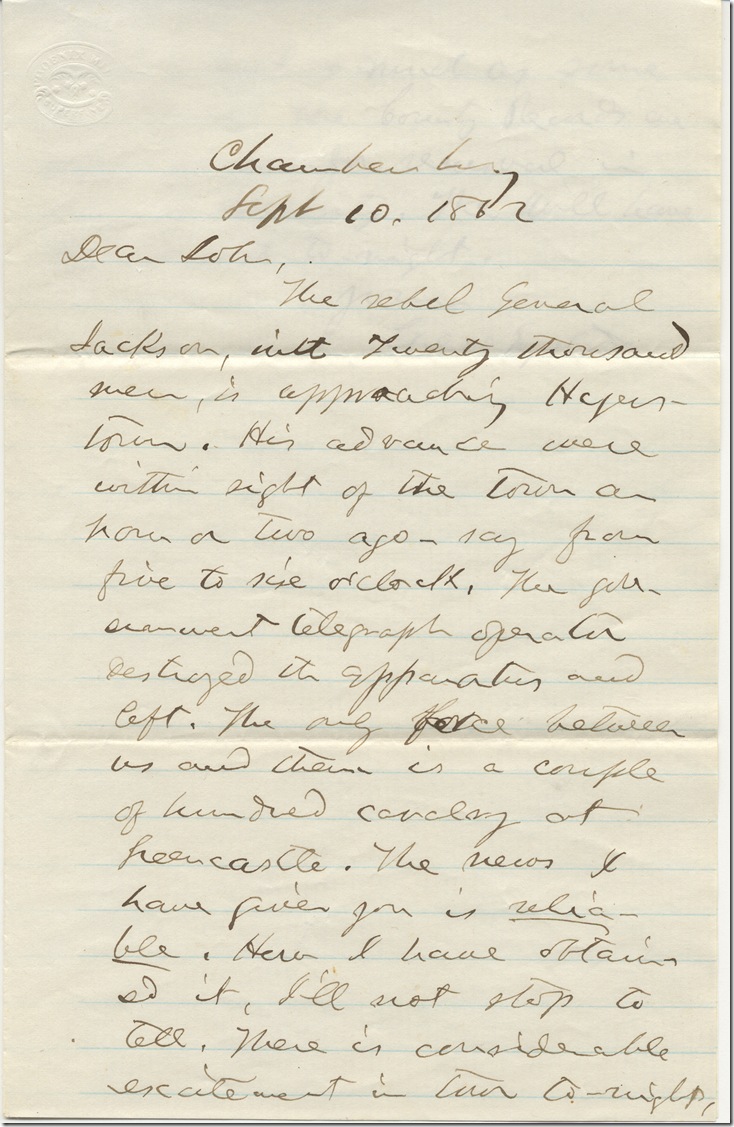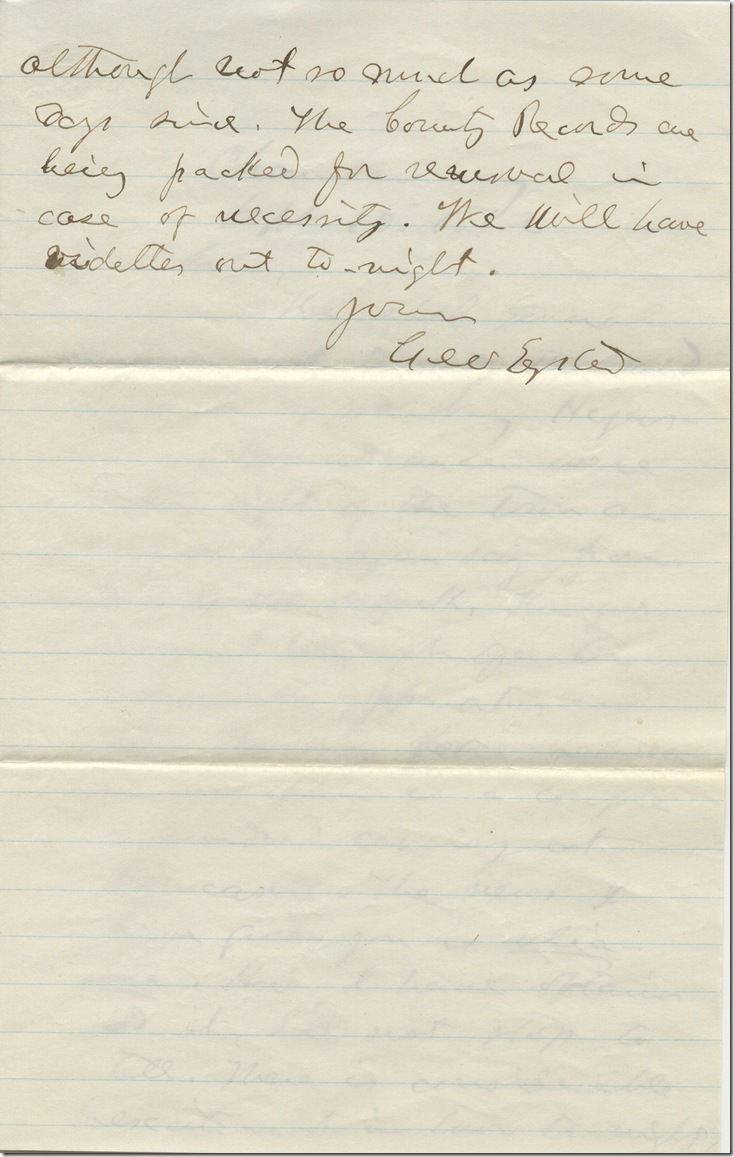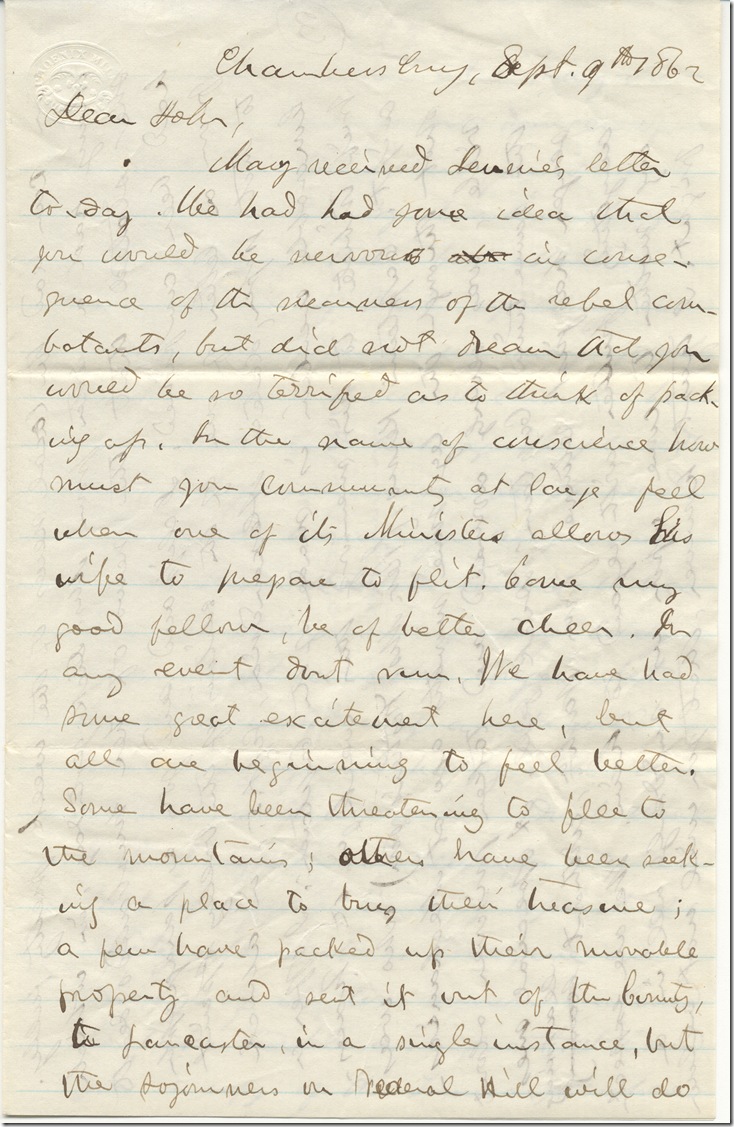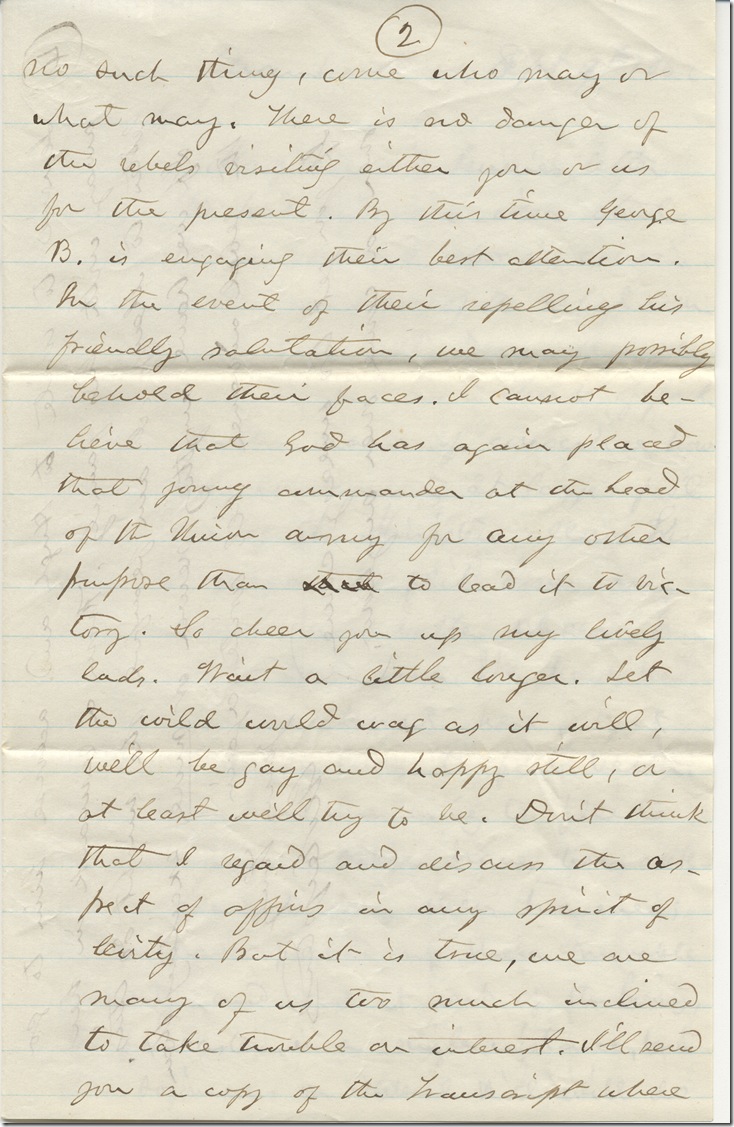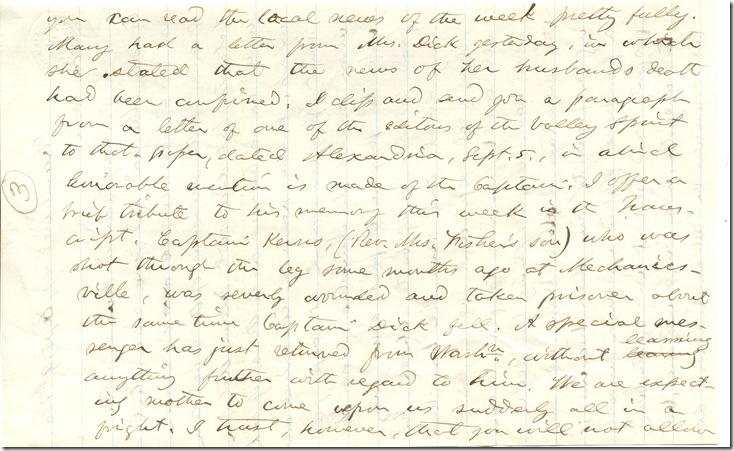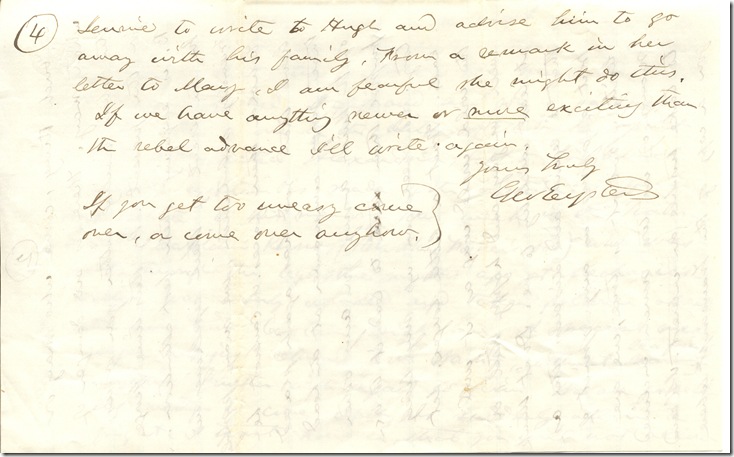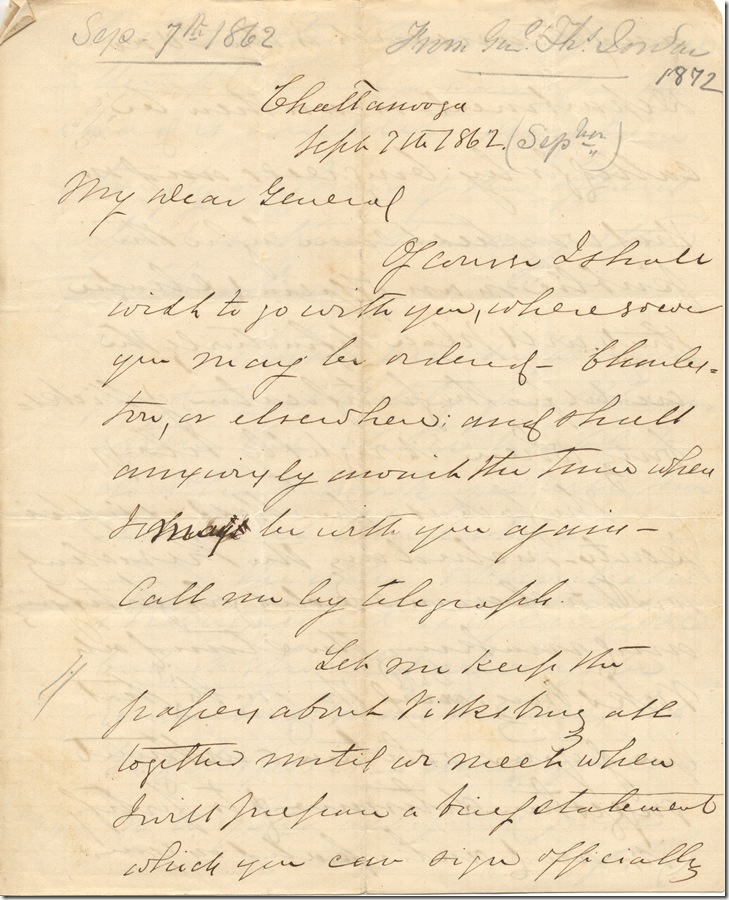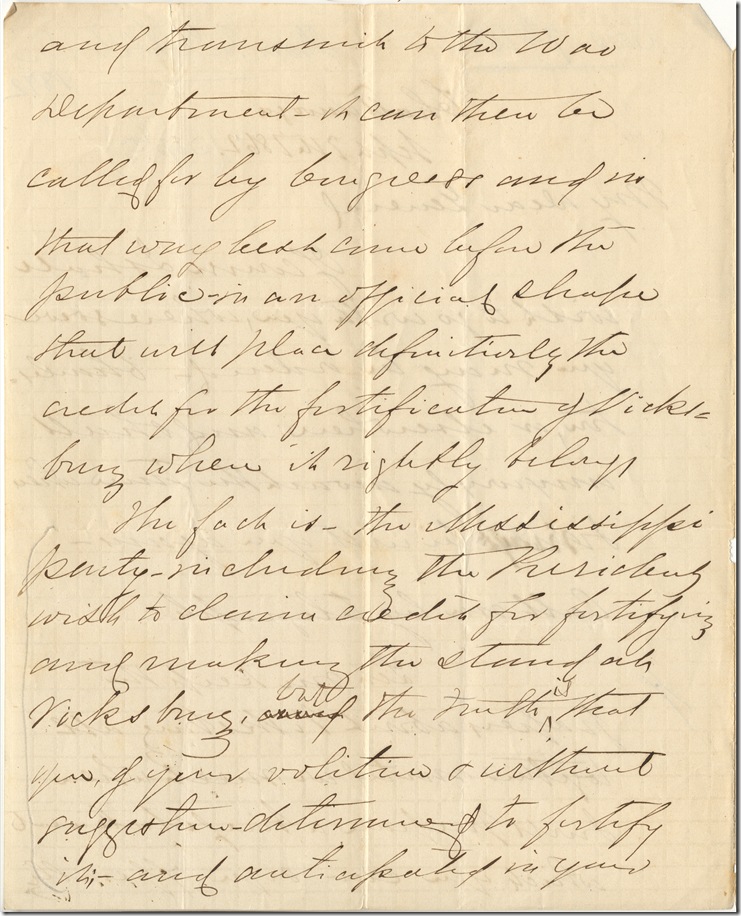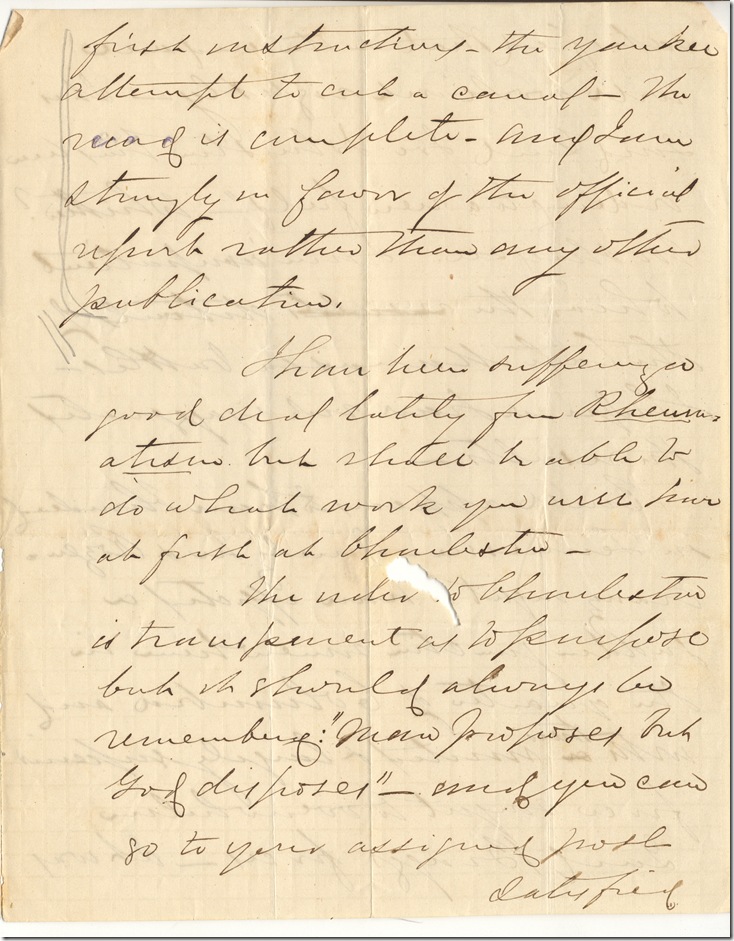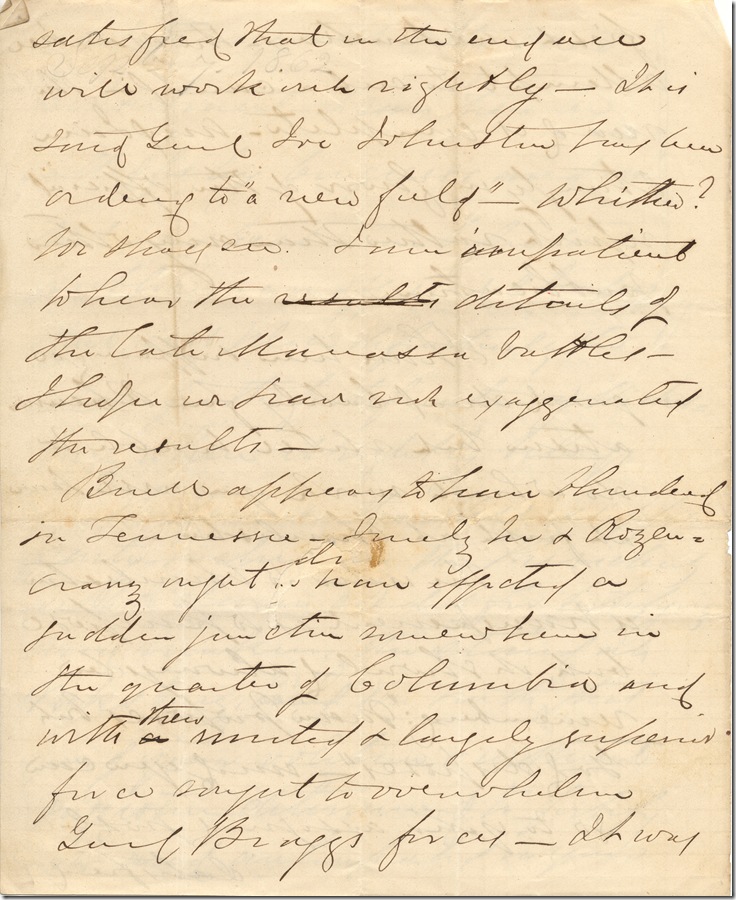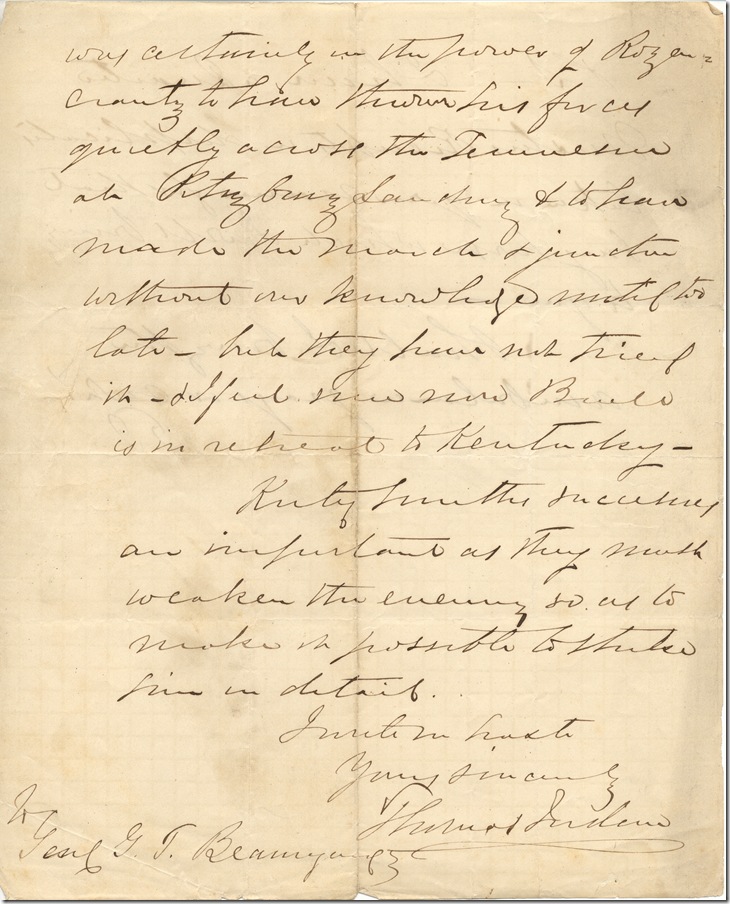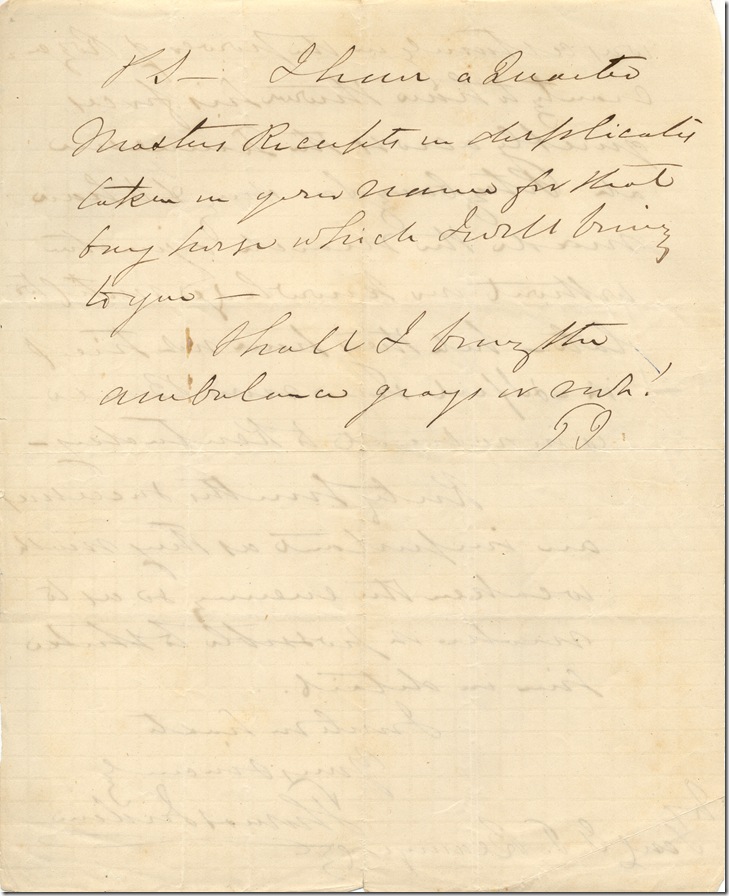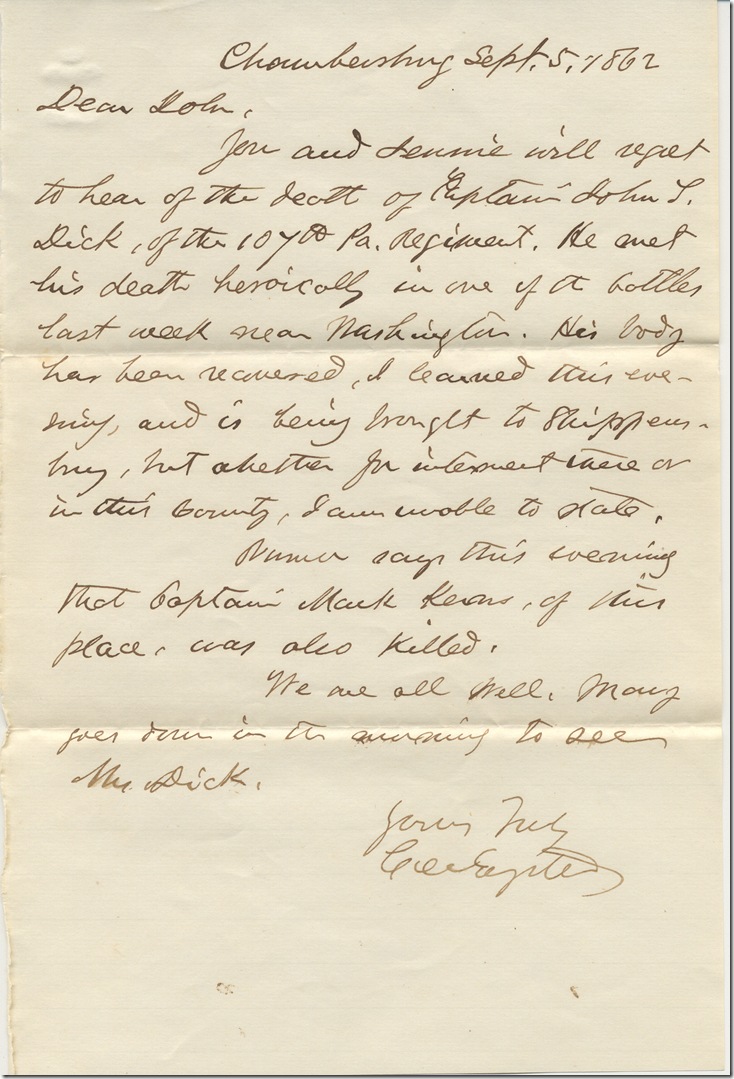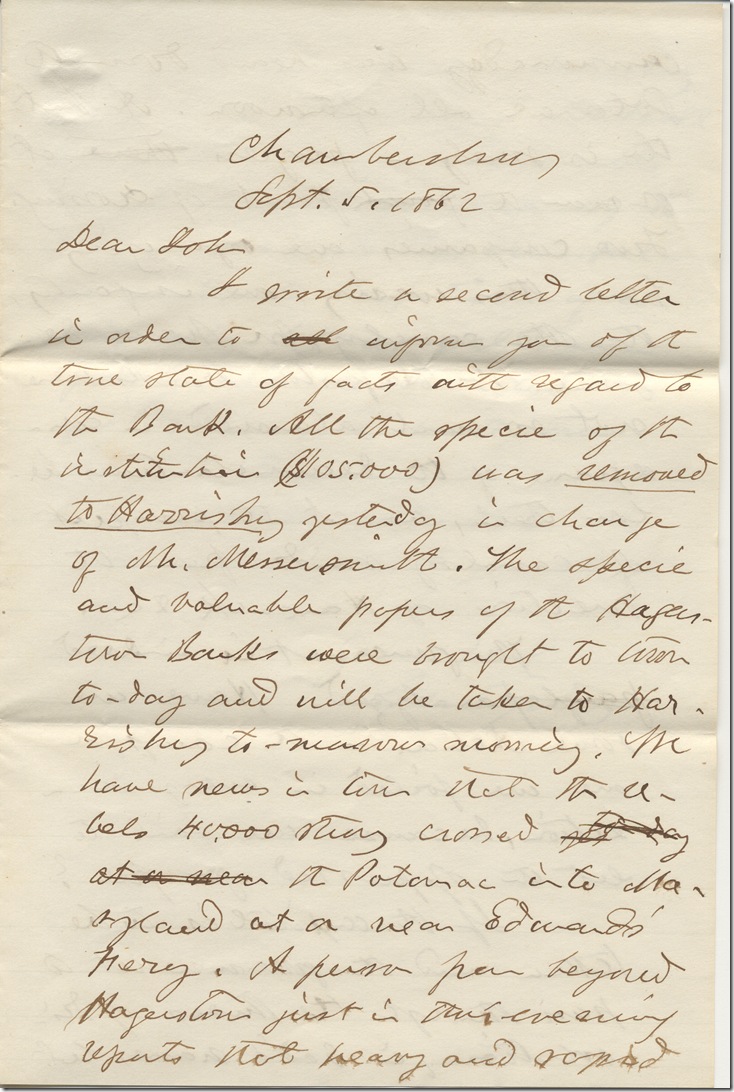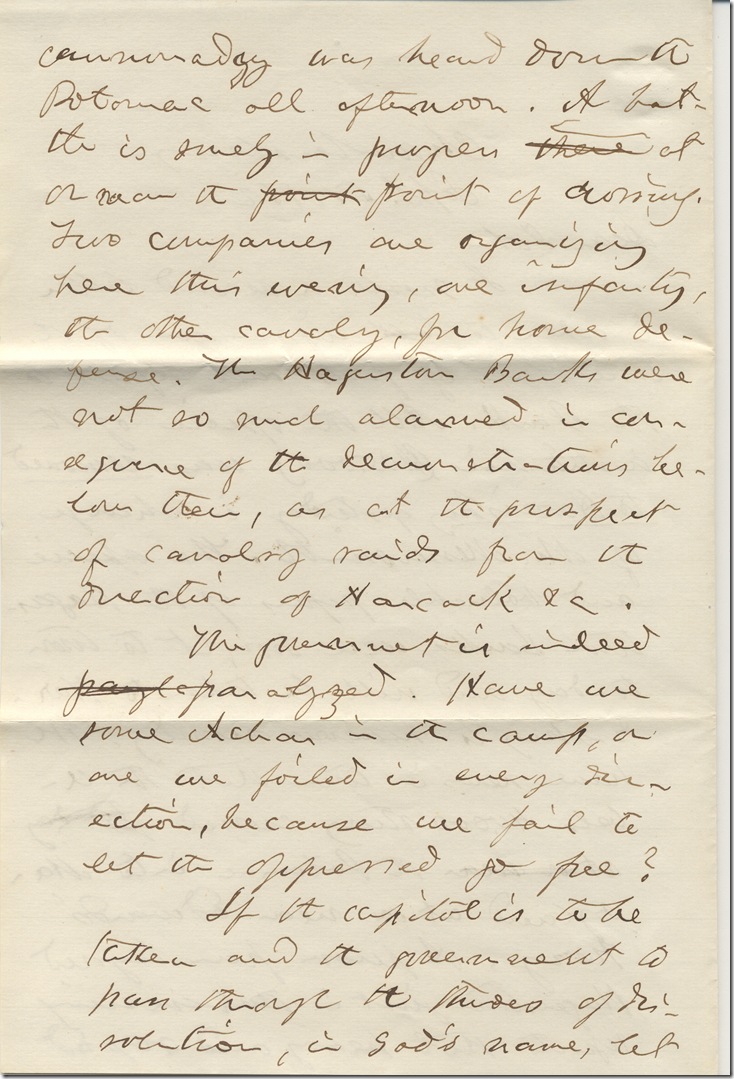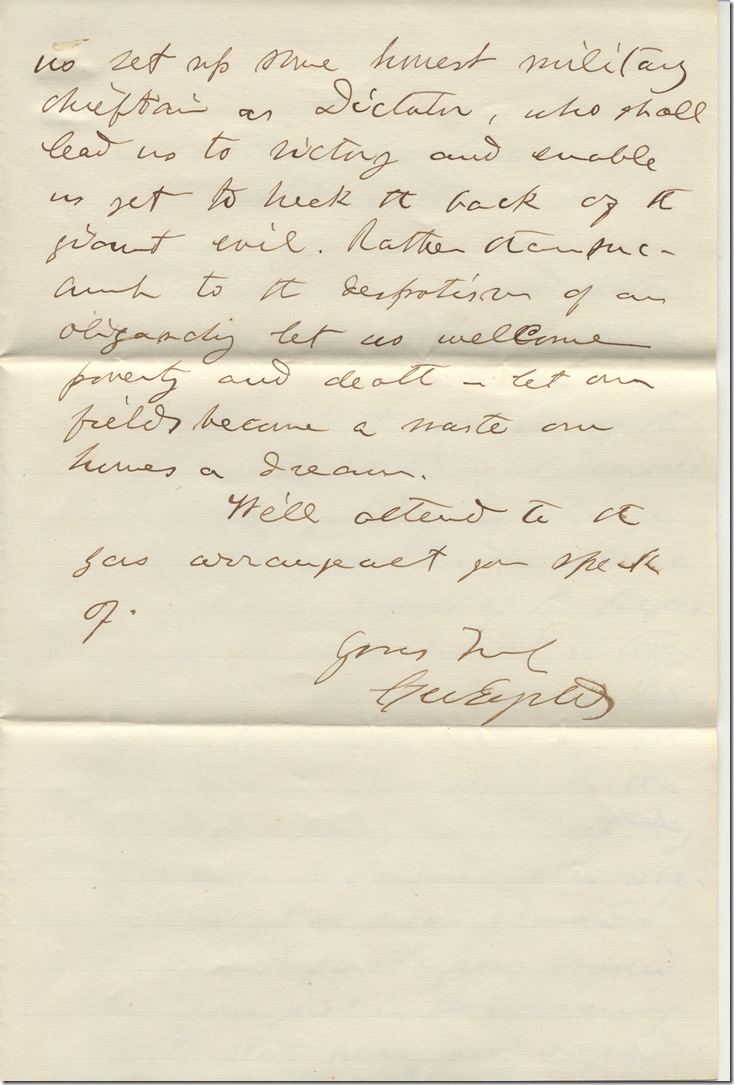Alexander Biddle was a member of the prominent Philadelphia Biddle family and was married to Julia Williams Rush, the granddaughter of Dr. Benjamin Rush. A businessman and member of the First Troop Philadelphia City Calvary before the war, Biddle entered Civil War service with the 121st Pennsylvania Volunteer Infantry on September 1, 1862. Starting out as a a major, he would fight at Fredericksburg and Gettysburg, among other engagements, and would leave the service as a lieutenant colonel. (He was commissioned, but never mustered, as colonel)
[Note: this statement has been updated to reflect that Biddle was not mustered as a colonel. It also originally mistakenly stated Biddle was also at Chancellorsville, but he was on leave]
Transcript:
Dear Julia
We are still at Camp Chase and now Brigaded with Thor L Kane for our Brigadier. We are the only Regmt assigned to his New Command and you may suppose not very willingly. We have a kind of feeling that he may have picked us out of the New Regiments but we don’t want to be make a bolsted of or to have a traveling correspondent with us for the press and think hee yet may have a chance to go somewhere else. We are getting along slowly not exactly according to my mind but advancing step by step with every prospect of good regiment the men are pleased and contented except some few to whom the bounty could not be paid. I looked anxiously through the mail bag last night for a letter from you hope I shall get one today. I sent part of my baggage and books back to Philadelphia and my watch to Tom by a Mr. Conarroe I wish you would get me an Officer’s knap sack made of leather a man named Brown H S Brown I think, in Chestnut St near 7th or 8th makes them. A round one of leather rather large size with a flap covering all the outside. The strap goes on over the shoulder it has several pockets – in short it is a light roomy sack I could carry on horseback – the larger ones I rather prefer, send me with it three or four leather straps about 30 inches long ½ inch wide with a buckle and bored fully of holes. I shall be very glad to get on some real duty. Everything seems slow but we must learn slowly and I feel the necessity of having some one who knows on the spot excepting as regards drill I think all that we can do ourselves Glenn Bradley was with us yesterday – Love to Uncle and the Dear Dear little ones. Tell Alick & Harry & Julia that Papa thinks constantly about them and hopes to find them good children when he next sees them. Kiss little Winny– the dear little boys photograph I have in my notebook which has been of the greatest use to me – and is always with me
Breakfast is just ready and out Quartermaster is going to town with the letters. Remember me to Clem and Tom and to Miss Cassy & Maria who I hope are still enjoying good health. Tell Clem to send Patrick to clean out the wine and let him look after 1626 Walnut St daily Moonley has just summoned me to breakfast
Your Affec husband
Alex
Tuesday Sept 15th
Citation: Alexander Biddle (1819-1899), autograph letter signed to Julia Williams Rush Biddle. 15 September 1862. Rush:IV:30:23
